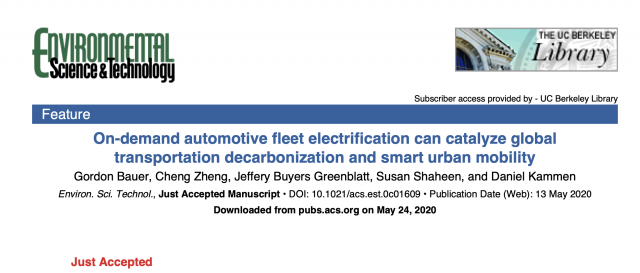Mobility on-demand vehicle (MODV) services have grown explosively in recent years, threatening targets for local air pollution and global carbon emissions. Despite evidence that on-demand automotive fleets are ripe for electrification, adoption of battery electric vehicles (BEVs) in fleet applications has been hindered by lack of charging infrastructure and long charging times. Recent research on electrification programs in Chinese megacities suggests that top-down policy targets can spur investment in charging infrastructure, while intelligent charging coordination can greatly reduce requirements for battery range and infrastructure, as well as revenue losses due to time spent charging. Such capability may require labor policy reform to allow fleet operators to manage their drivers’ charging behavior, along with collection and integration of several key datasets including: 1) vehicle trajectories and energy consumption, 2) charging infrastructure installation costs, and 3) real-time charging station availability. In turn, digitization enabled by fleet electrification holds the potential to enable a host of smart urban mobility strategies, including integration of public transit with innovative transportation systems and emission-based pricing policies.
PublicationJournal Article On-demand automotive fleet electrification can catalyze global transportation decarbonization and smart urban mobility
Published:
May 24, 2020
Author(s):
Publication Type:
Journal Article
Associated Projects:
Abstract:
